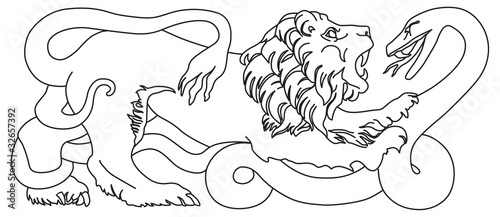Overkill might not be able to, but I definitely can.
First, the Japanese did not have the advantage. The U.S. had far more planes thanks to heavy use of deck parks on the carriers and land based planes from Midway, and the initiative since they knew Japanese strength from code breaking while the Japanese didn't know U.S. strength. The vast Japanese superiority in surface assets was completely irrelevant, a fact that Japan had yet to realize but the U.S. understood quite well. Task Force 1 had from repaired Pearl survivors and Atlantic transfers, a battleline comparable to that Yamamoto brought along to Midway, but it was consciously not committed so as to free up more escorts for the carriers and not slow them down.
Next, the particulars of the battle were very much determined by doctrine rather than luck. The Japanese never had anything like the interwar U.S. Fleet Problems, particularly the carrier on carrier duels between the Lexington and Saratoga, meaning the U.S. was actually the one with experience in carrier on carrier warfare. In particular the U.S. concluded (for a pre-radar era, as indeed the Japanese were still in) that finding and hitting the enemy carrier first trumped all else. Thus, every U.S. carrier had a squadron of scout bombers for this purpose, while the Japanese left scouting to floatplanes off cruisers, which were limited in both numbers and performance and had the problem of not being directly connected to the carrier commanders. Combined with the PBYs from Midway, and the codebreaking, there was no luck in the Japanese having a terrible time finding their enemies while the U.S. didn't. This wasn't all good of course, the emphasis on hitting first above all else meant the U.S. carriers were sending off individual squadrons as soon as they could be prepared and launched, which led to a lot of them being slaughtered individually, but certainly the Japanese emphasis on massed strikes helped keep their planes on deck until it was too late.
There was luck of course, as in any battle, but it can't be said to have particularly favored the U.S. The Akagi nearly went down to a kamikaze from Midway, for instance. It was certainly possible for all luck to go one way or the other, but how it went down historically is pretty much what you'd expect. Which was why the U.S. committed to the battle. Midway was a worthless island for Japan that it couldn't possibly hold and most likely couldn't take. If it didn't think it would win with its full knowledge of what strength the Japanese had, the U.S. wouldn't have fought there.



 Thanks for clarifying it for everyone.
Thanks for clarifying it for everyone.

